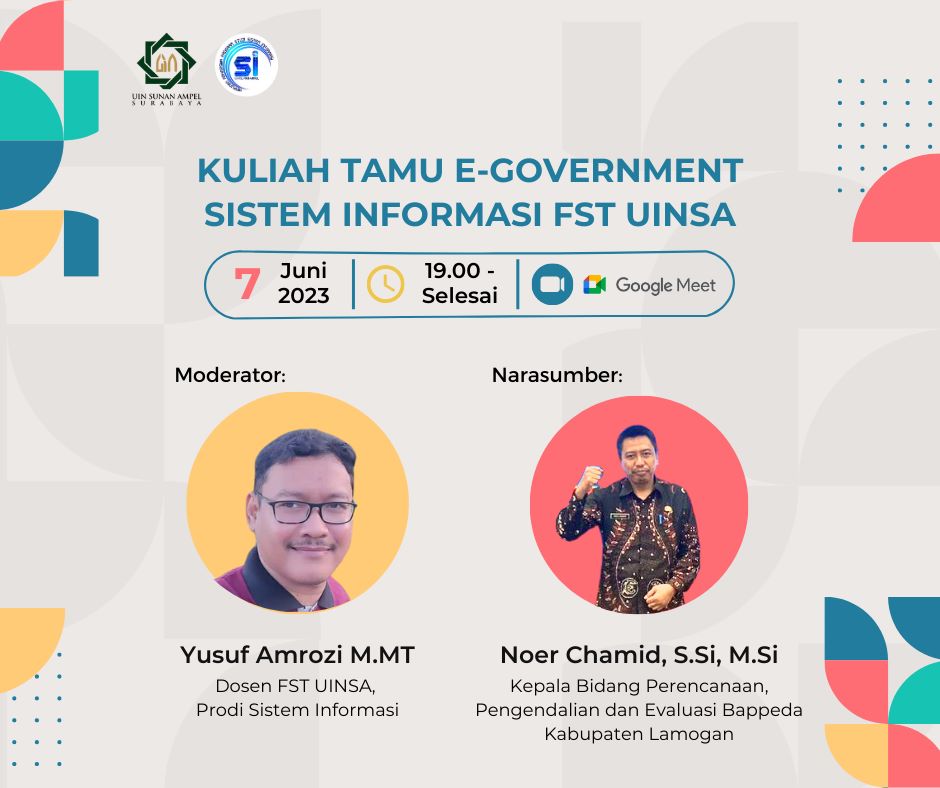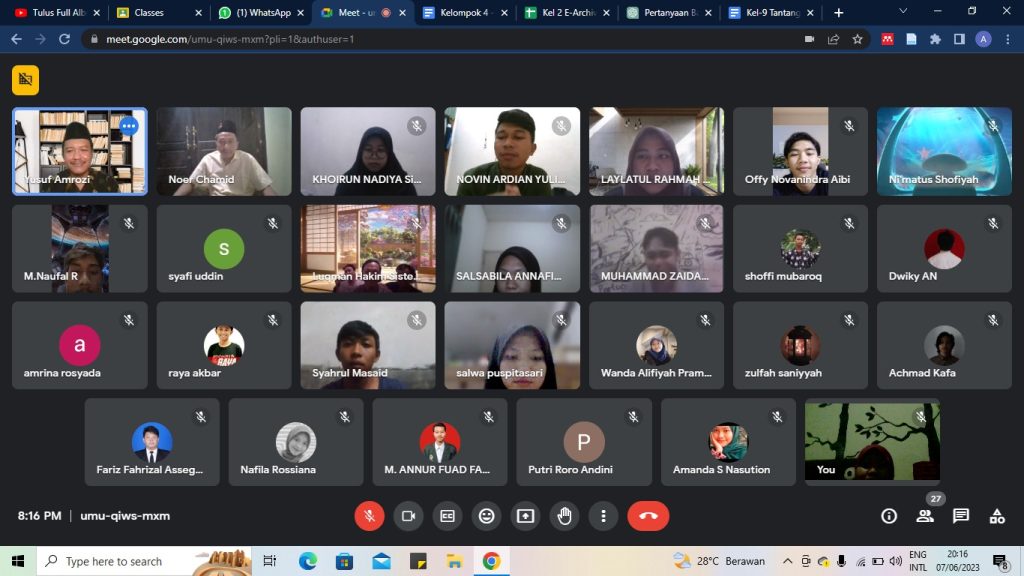
The United Nations (UN) conducted an E-Government Survey in 2022 which ranked Indonesia 77th for its performance in the development and implementation of Electronic Based Government Systems (EBS). The survey results made Indonesia rise 11 ranks from 88th in 2020 and 107th in 2018.
It is true that issues surrounding Electronic-based Government Systems or what can be called E-Government (E-Gov) continue to spark the attention of government leaders, not only at the center but also in local governments. This emerged in the Guest Lecture on Egovernment organized by the Information Systems Study Program of the Faculty of Science and Technology UIN Sunan Ampel Surabaya, Wednesday, June 7, 2023.
Present as a speaker Noer Chamid, S.SI, M.Si, Head of Planning, Control and Evaluation of Bappeda Lamongan Regency. This guest lecture was moderated by Yusuf Amrozi, M.MT, Lecturer of UINSA Information Systems. According to Yusuf, this guest lecture is intended to provide a broader spectrum of the practice or application of E-Gov in local government agencies, so that students do not only get theoretical insights on the lecture bench. This activity was attended by around 50 online students who took E-Government courses as well as a number of other Information Systems study program students.
“Dengan data kita bisa bekerja, dengan data kita bisa berbicara,”
Such was the tagline conveyed by Noer Chamid, S.Si, M.Si, as the speaker of this guest lecture. “If the data is wrong, then what is implemented and done must also be wrong,” said this alumni of S1 Brawijaya University and S2 Sepuluh november Institute of Technology in the Department of Statistics. Therefore, the main thing that must be addressed is data validity. “Data must be strong and valid in order to create maximum government performance”, he explained.

“All data must be one door and must be integrated, do not let the central, provincial and regional data not be connected. So that if the data is well integrated, it will create maximum public services and development. Therefore, this is part of the One Data target, which was launched by the central government, said Noer Chamid, who has worked as an ASN in the Lamongan Regency Government for 17 years.
Dwi Rolliawati, M.T as Head of the Information Systems Department appreciated and welcomed this activity as a means to develop students’ perspectives with the outside world, especially in the field of SPBE. “Events like this are great for upgrading student knowledge by getting to know new perspectives from SPBE practitioners,” Dwi added.
Closing this guest lecture, Yusuf as the lecturer in charge of the E-Government course as well as the moderator emphasized that increasing the E-Government quality index is measured at least through three dimensions, namely; Democratic Dimension, Service Dimension, and Administrative Dimension. Democratic Dimension, in the campus context, means the extent to which the climate of academic freedom is able to increase the productivity of the work and innovation of the academic community. Service Dimension is related to the quality of government organization services, and Administrative Dimension is related to the support of information technology systems in supporting the effectiveness and efficiency of government operational management.















